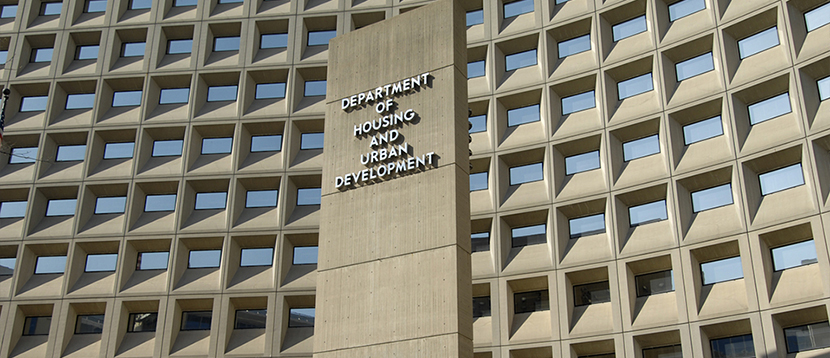
HUD Restores Affirmatively Furthering Fair Housing Requirement

HUD published an interim final rule on Thursday to restore implementation of the Fair Housing Act’s Affirmatively Furthering Fair Housing requirement, which was discontinued during the Trump Administration.
HUD Secretary Marcia Fudge said the final rule provides a “robust definition” of the duty to affirmatively further fair housing, to which many HUD grantees must certify compliance. Additionally, she said HUD is committed to providing communities that receive HUD funding with the technical support they need to meet their long-standing fair housing obligations.
HUD originally promulgated the rule in 2015 designed to fulfill a requirement under the Fair Housing Act requiring HUD and its funding recipients, such as local communities, to also take affirmative steps to remedy fair housing issues such as racially segregated neighborhoods, lack of housing choice and unequal access to housing-related opportunities. The rule compelled each covered funding recipient to undertake a defined fair housing planning process. Funding recipients were required to complete an assessment of fair housing issues, identify fair housing priorities and goals, and then commit to meaningful actions to meet those goals and remedy identified issues, with HUD reviewing each assessment.
However, the Trump Administration, as part of its effort to reduce the number of federal regulations, suspended implementation of this rule and eliminated the 2015 rule’s procedural requirements, redefining the regulatory AFFH requirement so it was no longer consistent with the actual requirements of the Fair Housing Act. Then-HUD Secretary Ben Carson called the AFFH requirement “complicated, costly and ineffective.”
“After reviewing thousands of comments on the proposed changes to the Affirmatively Furthering Fair Housing regulation, we found it to be unworkable and ultimately a waste of time for localities to comply with, too often resulting in funds being steered away from communities that need them most,” Carson said in 2018.
The Trump Administration instead established new programs, such as the Opportunity Zone program, which shifted capital to underserved communities.
Under the restored AFFH regulatory definition, municipalities and other HUD funding recipients that must regularly certify compliance with the Fair Housing Act’s AFFH requirement will, in doing so, commit to taking steps to remedy their unique fair housing issues. To support compliance with AFFH, HUD will provide a voluntary process that funding recipients can choose to use to identify the fair housing concerns that exist locally and commit to specific steps to remedy them. HUD will provide technical assistance and support to funding recipients that carry out this voluntary fair housing planning process.
“More than 50 years since the Fair Housing Act’s passage, inequities in our communities remain that block families from moving into neighborhoods with greater opportunities,” Fudge said. “As a former mayor and Member of Congress, I know firsthand the importance of giving localities the tools they need to ensure their communities have access to safe, affordable housing near quality schools, transportation, and jobs. Today, HUD is taking a critical step to affirm that a child’s future should never be limited by the ZIP code where they are born.”
The interim final rule will go into effect on July 31. HUD will take comments for 30 days after publication and may act on them prior to the effective date of the rule. Fudge added HUD intends to undertake a separate rulemaking to build upon and further improve the 2015 AFFH rule by instituting a new fair housing planning process and framework that increases efficiency and improves outcomes for communities.
